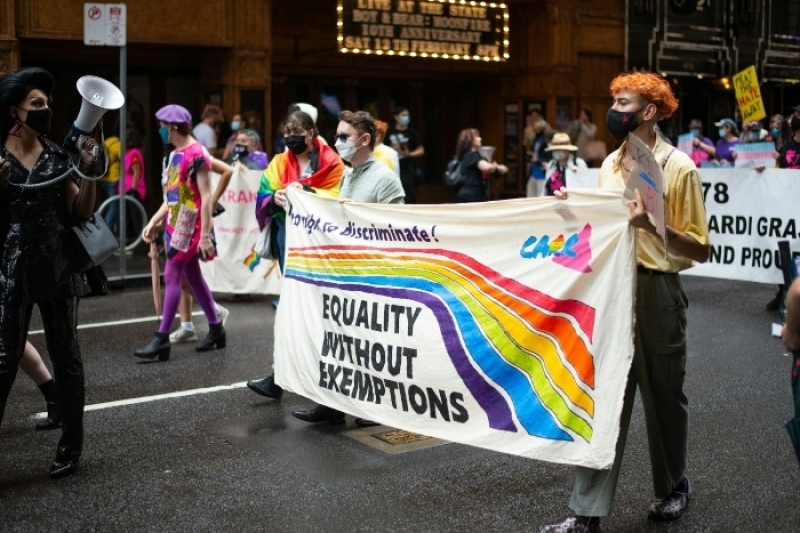
Almost half of college professors feel uncomfortable discussing the topic of so-called “transgender rights” on campus, amid ongoing concerns about free speech in higher education, as a new survey has been released.
The Foundation for Individual Rights and Expression(FIRE) released its 2024 FIRE Faculty Survey Report, titled “Silence in the Classroom,” on Thursday. The report is based on responses from 6,269 faculty members at 55 colleges and universities across the United States, collected between March 4 and May 13.
The survey assessed respondents' ability to engage in “open and honest conversations” about various contentious topics on campus.
A significant majority, 70%, reported difficulty discussing the Israel-Gaza conflict, while slightly more than half, 51%, indicated similar challenges regarding racial inequality. Nearly half, 49%, expressed difficulties engaging in discussions about transgenderism.
Faculty members reported challenges discussing various topics, including affirmative action (47%), the presidential election (41%), abortion (38%), gender inequality (37%), hate speech (35%), religion (34%), police misconduct (31%), gun control (31%), gay rights (28%), and freedom of speech (27%).
Fewer than one in four professors reported difficulties discussing academic freedom (24%), sexual assault (24%), climate change (21%), economic inequality (21%), China (19%), and crime (19%).
The survey highlighted significant differences in views on free speech on campus based on professors' political ideologies. 27% of faculty members felt they could not express their opinions on certain subjects due to concerns about reactions from other faculty, students, and the administration. Nearly half of conservative professors, 47%, expressed this concern, compared to 29% of moderate professors and 19% of liberal professors.
32% of conservative professors admitted to self-censoring their research topics, in contrast to 25% of moderate professors and 15% of liberal professors. Conservative professors also demonstrated higher levels of self-censorship regarding their academic publications (42%) compared to moderates (34%) and liberals (21%).
A majority of conservative professors, 57%, censored their outside talks, while smaller percentages of moderate (47%) and liberal professors (34%) did the same. Additionally, 58% of conservative professors reported censoring their classroom lectures or discussions, compared to less than half of moderates (48%) and liberals (38%).
Despite at least half of professors from each ideological group indicating they self-censor communications such as emails and social media, the rate was notably higher among conservative professors, with 69% engaging in self-censorship compared to 62% of moderates and 50% of liberals.
The report emphasized the need for courageous faculty in academia: “The academy needs courageous faculty who are not afraid to research, write about, or teach topics that some many shy away from because they are labeled as controversial — to ask and investigate unasked and unanswered questions.” It further urged the necessity for more faculty members who can support their colleagues who fear reprisal or have faced consequences for their speech or academic pursuits.


















